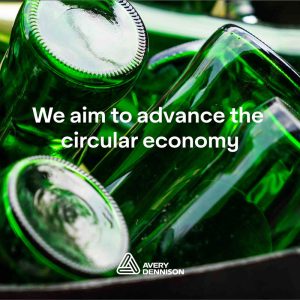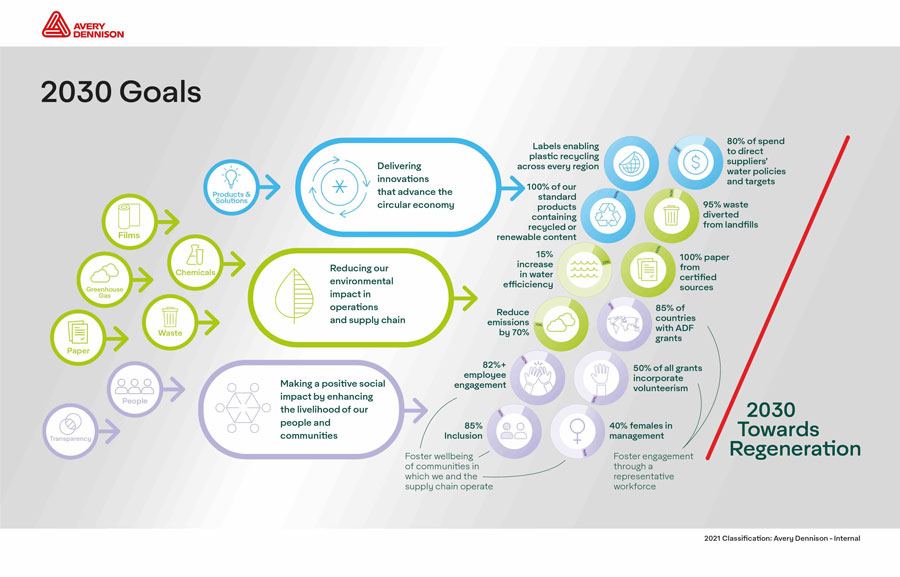 GLENDALE, Calif. —May 4, 2021 — Avery Dennison today announced its ambition to be net-zero on greenhouse gas emissions by 2050. This commitment comes as the company raises the bar on its sustainability goals with new targets for 2030.
GLENDALE, Calif. —May 4, 2021 — Avery Dennison today announced its ambition to be net-zero on greenhouse gas emissions by 2050. This commitment comes as the company raises the bar on its sustainability goals with new targets for 2030.
As part of these new targets, the Retail Branding and Information Solutions (RBIS) business commits to 100 percent of its core products (printed fabric labels, woven labels, paper, interior heat-transfer labels, packaging and RFID) meeting its third-party verified ClearIntent Standard which requires products and solutions that enable circularity, reduce material usage, increase recycled content in end products or are sourced responsibly. The company is also expanding its portfolio to include more intelligent labeling to advance the communication of data, reduce costs and waste, and create better recycling processes. This will ensure that Avery Dennison is well-positioned to satisfy current or future recycling, composting or reuse requirements for single-use consumer plastic packaging and apparel.
The specific 2030 targets fall under three broad sustainability goals:
- Deliver innovations that advance the circular economy;
- Reduce environmental impact in operations and supply chain; and
- Make a positive social impact by improving the livelihoods of people and communities.
In addition, the company’s 2030 ambitions include procuring paper exclusively from responsibly-managed forests to help ensure a deforestation-free future.
“Meeting our 2030 ambitions will be the greatest test yet of our capacity to innovate, as well as an invaluable opportunity to position our business for lasting success,” said Michael Colarossi, vice president, innovation and sustainability, Retail Branding and Information Solutions, Avery Dennison. “We are proud to have exceeded our 2025 goal for reducing absolute GHG emissions, and we are making steady progress on our other sustainability commitments.” The company has also pledged to reduce emissions by 70 percent against its 2015 baseline, and to work with its supply chain to reduce Scope 3 emissions by 30 percent against its 2018 baseline. The company’s overall ambition is to produce net-zero emissions by 2050 and enable a future of regeneration. The 2030 goals also include targets for gender diversity, employee engagement and inclusion, safety, and more.
The company has also pledged to reduce emissions by 70 percent against its 2015 baseline, and to work with its supply chain to reduce Scope 3 emissions by 30 percent against its 2018 baseline. The company’s overall ambition is to produce net-zero emissions by 2050 and enable a future of regeneration. The 2030 goals also include targets for gender diversity, employee engagement and inclusion, safety, and more.
“With our 2030 goals, we’re expanding our focus to make an even greater difference,” Colarossi said. “Since establishing our original sustainability goals, we’ve gained a greater understanding of where our business overlaps with the world’s most urgent environmental challenges — and importantly, the areas where we can, and will, lead.”
Posted May 4, 2021
Source: Avery Dennison




